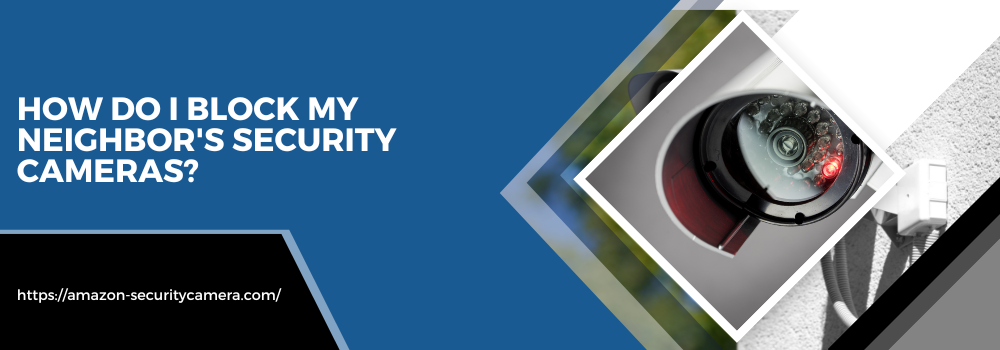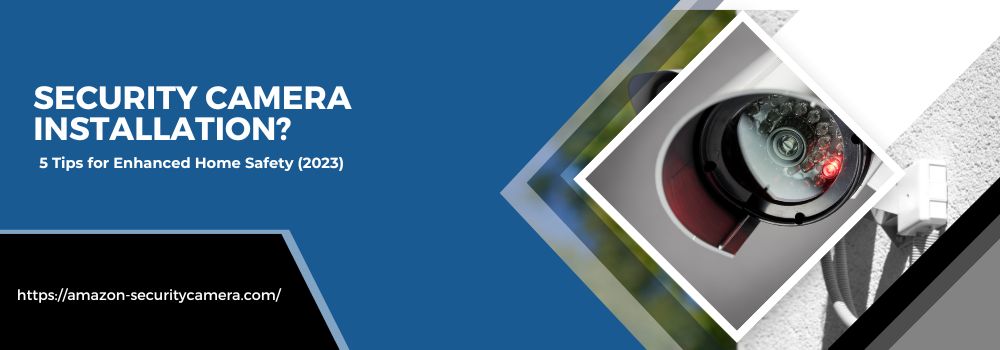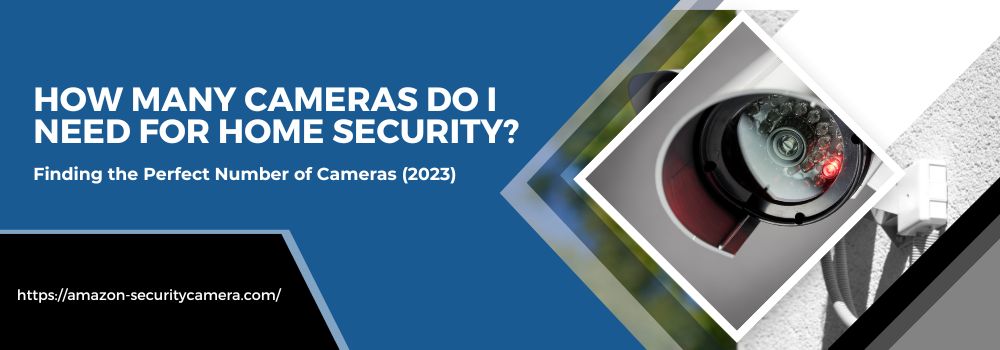How do I block my neighbor’s security cameras? Are you concerned about your privacy and security when it comes to your neighbor’s security camera constantly monitoring your activity outside? We understand that the feeling of surveillance can be highly intrusive and sometimes even intimidating.
Thankfully, there are several techniques that you can use to successfully block or avoid being seen on nearby security cameras to have peace of mind.
In this blog post, we will explore how businessmen, shopkeepers, and electricians alike can effectively take steps toward protecting their privacy from their neighbors’ security cameras. Read on to find out more!
How do I block my neighbor’s security cameras?
Read below to learn How to block my neighbor’s security cameras.
Read another article about Does public storage has security cameras. 5 Best Tips
Table of Contents
Establish the legal limits of camera placement
The first step to protect your privacy is to research and understand the legal framework that governs the installation and usage of surveillance cameras. Laws vary from place to place, and what is legal in one area might not be legal in another. It’s critical to comprehend the specific regulations in your locale to take necessary action.
While it’s generally legal for your neighbor to install a security camera, there are certain limits. For instance, it’s typically unlawful for cameras to intrude on your private spaces such as inside your home or in your backyard. If you find that a neighbor’s security camera is breaching these limits, you can take legal action or consult local authorities.
Determine if your neighbor’s cameras are infringing on your privacy
Before taking any concrete steps, it’s important to accurately determine whether your neighbor’s security cameras are infringing on your privacy. Pay attention to the positioning of the cameras. If they are pointed towards private areas of your home like your bedroom window, bathroom, or other areas where you have a reasonable expectation of privacy, then it is likely that your privacy is being invaded.
After ascertaining the direction of the cameras, it’s also crucial to understand the extent of their view. If a camera is pointed towards a public area but also captures images inside your property, this might also be a violation of your privacy rights. In such cases, you may have legal grounds to request the camera be repositioned or removed. Remember, knowledge of your local laws will be instrumental in determining whether your neighbor’s surveillance practices are infringing upon your rights.
Talk to your neighbor about the issue and try to come to an agreement
Open communication can often lead to resolution without resorting to legal measures. You can approach your neighbor and express your concerns about your privacy being compromised. It’s quite possible that they may not even realize the extent to which their camera is intruding upon your privacy. By voicing your concerns politely and respectfully, your neighbor might be willing to adjust the positioning of their camera if it’s causing you discomfort.
Moreover, it’s also advisable to document this conversation, in case you need to provide proof of your efforts to rectify the situation amicably. A paper trail can act as potential evidence if the issue escalates and you need to involve law enforcement. Also, it’s a good idea to have this conversation with a neutral third party present, to prevent any misunderstanding or miscommunication.
Take action by filing a complaint with local law enforcement or a private investigator
If your conversations with your neighbor don’t yield the desired results or if they are unresponsive to your concerns, the next step is to file a formal complaint with your local law enforcement. Provide them with all the necessary details about the situation, including any evidence you’ve managed to collect, such as photographs showing the intrusive positioning of the cameras, or any written communication with your neighbor. They will assess the situation and determine whether your privacy rights have been violated according to local laws, and take necessary action if required.
In some cases, you might need to hire a private investigator, especially if there are multiple cameras in question or if the situation is complex. A private investigator can conduct a thorough surveillance audit to determine whether your privacy is indeed being invaded. They are also well-versed in privacy laws and can provide valuable advice on how to proceed. Remember, taking action may seem stressful, but it’s crucial to stand up for your privacy rights.
Find out if there are local ordinances restricting camera placement in your area
There may be specific local ordinances in your area that impose restrictions on the placement of security cameras. These ordinances can limit where cameras can be placed, how they can be used, and the extent of areas they can cover. Researching these regulations can give you a significant advantage when discussing the issue with your neighbor or taking legal action.
You can find this information by visiting your local government or city council website, or by contacting a local law enforcement agency. If there are restrictions in your area that your neighbor is not adhering to, you can report this to the relevant authorities. They can enforce these regulations and ensure that your privacy is protected.
Consider building a physical barrier between you and your neighbors’ cameras, such as trees or shrubbery
In some circumstances, a simple and effective solution might be to establish a physical barrier blocking the line of sight from your neighbor’s surveillance camera onto your property. This barrier could take various forms, such as planting trees or erecting a privacy fence. These obstructions can effectively shield your private spaces from intrusive cameras, while also adding an aesthetic element to your property.
Trees, in particular, are a natural and environmentally friendly choice for creating a privacy barrier. Depending on the species, they can grow tall and dense, providing a broad shield against prying eyes. Alternatively, a privacy fence or a wall could serve as more immediate and likely more complete solutions. While these options may require a greater initial investment and possibly permits, they offer an additional layer of privacy and security. Always remember to adhere to your local regulations when constructing these barriers.
Consider using digital methods such as signal jammers or radio frequency blockers
In today’s world, technology offers several sophisticated solutions to protect your privacy from intrusive surveillance cameras. One such solution is using a signal jammer or radio frequency (RF) blocker, a device that inhibits the camera’s ability to transmit data by disrupting the signal between the camera and its receiver. This can effectively make you invisible to your neighbor’s security system.
However, it’s important to note that the use of signal jammers and RF blockers may be subject to legal restrictions in certain jurisdictions. Therefore, it’s essential to familiarize yourself with local laws and regulations before considering this method. Always pursue options that respect the law, while also ensuring your privacy is preserved.
Learn more about how to protect your privacy rights from surveillance cameras
Educate yourself on the various privacy laws and regulations
Understanding the legal framework surrounding surveillance and privacy rights can be a powerful tool in protecting yourself from unwanted surveillance. Different jurisdictions have different rules about what constitutes legal surveillance, so it’s important to learn about the specific laws applicable in your area. Some regions may have regulations that strictly limit the use of residential surveillance cameras, especially if they infringe upon the privacy of others. Once you’re informed about these laws, you can use this knowledge to engage in informed discussions with your neighbor or take the necessary legal action.
Moreover, privacy laws are continually evolving to keep up with modern advancements in technology. Hence, it’s beneficial to keep abreast of any recent changes or updates to the laws in your jurisdiction. Keeping informed not only protects your privacy but also ensures you’re not inadvertently infringing on others’ privacy with your security measures.
Leverage technology to safeguard your privacy
Aside from legal avenues, technology itself provides numerous ways to protect your privacy. There are various tech devices and solutions available in the market that can help you counter unwanted surveillance. For instance, there are privacy screen protectors that can limit the viewing angle of your windows, making it difficult for cameras to capture clear images.
Additionally, security software like VPNs (Virtual Private Networks) can help protect your online privacy by encrypting your internet connection and hiding your IP address. For physical privacy, consider investing in blackout curtains or blinds that obstruct outsiders’ view into your home. It’s worth researching and investing in privacy-enhancing solutions that best suit your needs and circumstances.
Conclusion
In conclusion, being constantly monitored by nearby security cameras can be a source of concern for many individuals. Fortunately, there are various ways to protect your privacy and avoid being seen on these cameras. From understanding local ordinances and leveraging technology to creating physical barriers and learning about relevant laws, taking action is essential in safeguarding your privacy rights. Remember, it’s important to approach the issue with your neighbor diplomatically and respect any legal regulations while seeking a solution. With the appropriate measures in place, you can have peace of mind knowing that your privacy is protected from intrusive surveillance cameras.
FAQ
Q#1: Can I legally ask my neighbor to remove their security camera?
Ans: It depends on the laws and regulations in your specific jurisdiction. Some areas may have strict rules about residential surveillance, while others may not. Check with local authorities or seek legal advice before taking any action against your neighbor’s security camera.
Q#2: How can I tell if my neighbor’s security camera is infringing on my privacy?
Ans: If the camera is pointed towards your private spaces, such as your backyard or windows, it’s likely infringing on your privacy. You can also consult with legal experts to determine if any local laws or regulations are being violated.
Q#3: Can I use physical force to stop my neighbor’s security camera from recording my activities?
Ans: No, using physical force is never a viable or legal solution. It’s essential to approach the situation calmly and respectfully, possibly by discussing it with your neighbor or seeking legal advice. Remember to always respect the law when dealing with privacy-related issues. So, use this guide to protect your privacy from intrusive surveillance cameras and enjoy peace of mind in your own home.
Q#4: Can I install my own surveillance camera to monitor my neighbor’s activities?
Ans: Again, this depends on the laws in your jurisdiction. In some areas, it may be illegal to point cameras towards someone else’s property without their consent. It’s best to research and understand the relevant privacy laws before installing any surveillance equipment.



